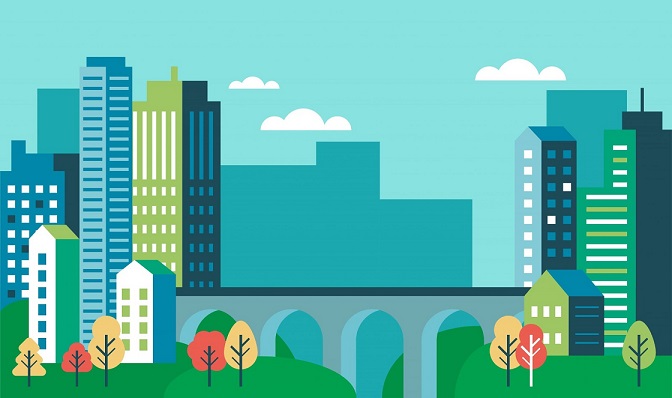In the vibrant and ever-evolving real estate landscape of India, a few visionary developers have embarked on a remarkable mission to redefine modern lifestyle residential apartment complexes in smaller towns.
Tier 2 and Tier 3 cities
Gone are the days when metropolitan cities monopolized the concept of luxurious and contemporary living. These trailblazing developers have recognized residents untapped potential and burgeoning aspirations in tier 2 and 3 cities, aiming to provide them with state-of-the-art living spaces that rival those in big cities.
Breaking away from the traditional mould, these developers have set out to create contemporary living spaces that blend functionality, aesthetics, and sustainability. They aim to bring a touch of urban sophistication and convenience to these regions, elevating the residents living standards and creating vibrant communities that foster growth and harmony.
“We understand that residents in smaller towns have aspirations and expectations similar to those living in larger cities, and we are striving to meet and surpass these aspirations. By incorporating the latest architectural trends, innovative design concepts, and cutting-edge technology, we are crafting living spaces that reflect the changing preferences and lifestyles of the new generation in tier 2 and 3 cities,” says Mr. Yash Miglani, MD, Migsun Group.
“These residential complexes offer a host of amenities, such as landscaped gardens, modern fitness centres, swimming pools, community halls, and recreational spaces, enabling residents to enjoy a well-rounded and fulfilling lifestyle right at their doorstep,” says Ms. Radheecka Rakesh Garg, Director, Rajdarbar Realty.
Additionally, sustainability is a key focus, with eco-friendly features and practices integrated into the design and construction of these complexes, ensuring a greener future for generations to come.
“Indias real estate development is experiencing a substantial boom in major cities as well as tier 2 and tier 3 cities. This surge can be attributed to the improvement of intercity and inner-city infrastructure development, encompassing both brown and greenfield roads, rail networks, and rapid transit systems. These advancements have enhanced connectivity with metropolitan cities. Additionally, the growth of industry and cluster-based development, along with the free movement of goods due to GST, the strengthening of social infrastructure, and the increasing demand for a similar lifestyle, have motivated developers to focus on tier 2 and tier 3 cities,“ says Mr. Avneet Soni, President, Omaxe Ltd.
“The pandemic has also played a crucial role in shifting mindsets, with individuals now prioritizing proximity to their hometowns, creating a need for small and affordable living spaces in these cities. The governments efforts to boost infrastructure development across these cities and state-level incentives to promote manufacturing under the Make in India program have further fueled this growth,” says Mr. Prateek Mittal, Executive Director, Sushma Group.
Analysts predict that these cities, some of which are part of industrial corridors, have the potential to become hotbeds for future economic growth, particularly in the real estate market. The lower cost of living in tier 2 and 3 cities has accelerated the real estate boom. The pandemic and infrastructure development have acted as catalysts, creating new job opportunities and increasing purchasing power, which residents are keenly investing in real estate.
Moreover, the Union Budget 2023-24 has announced the establishment of the Urban Infrastructure Development Fund (UIDF), managed by the National Housing Bank. This fund will be utilized by public agencies to develop urban infrastructure in tier 2 and 3 cities across the country. This initiative showcases the governments commitment to promoting balanced and sustainable development across various regions.

